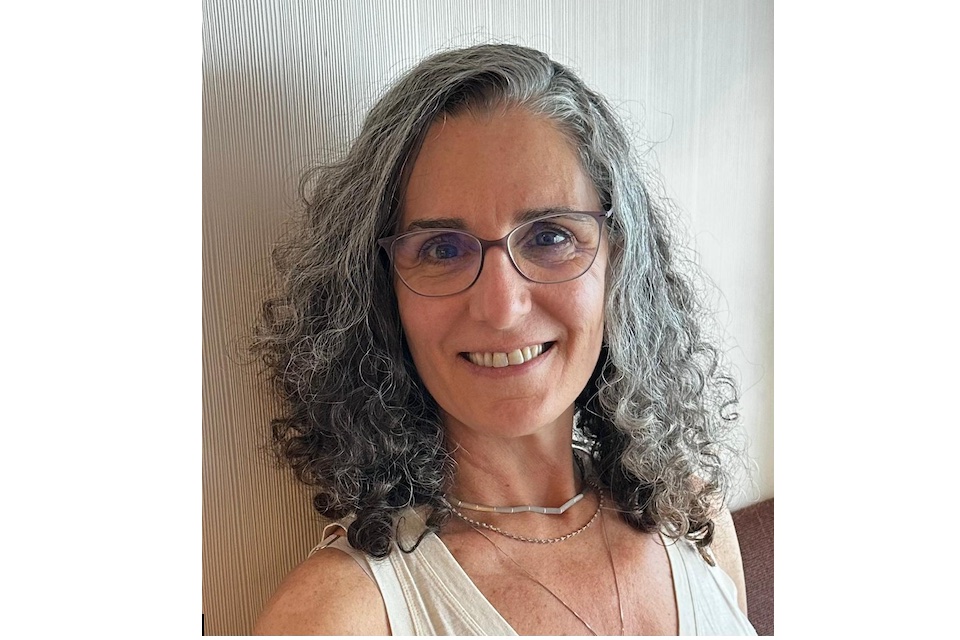"This Program Has Been Life-Changing": An Interview with Claudia Politanski, Near Eastern and Judaic Studies Master's Student

March 20, 2025
Abigail Arnold | Graduate School of Arts and Sciences
Claudia Politanski came to Brandeis University’s master’s program in Near Eastern and Judaic Studies (NEJS) as the start of a new path. “I had a previous ‘life’ – I’m a lawyer by training and had a thirty-year career as an executive in the Brazilian banking industry,” she said. “But I had a life-long dream of becoming a historian and decided it might be time for me to try to develop a second career.” Drawn to Brandeis and NEJS for the wide-ranging curriculum – “it’s the only place that has such a comprehensive program where you can study and do research in basically all aspects and periods of Jewish history” – she found herself in a program that changed her personally and intellectually.“This program, to me, has been life-changing,” said Politanski. “From an intellectual point of view, I was exposed to so many interesting opportunities for learning, thinking critically, and thinking in a different way. As a lawyer and executive vice president of Brazil's largest bank, I had contact with many smart, interesting people, but very few had the density of Brandeis professors. The amount of knowledge they can gather inside their brains and the way they can provoke you to think differently is staggering!” Participating in mixed courses with graduate students and undergraduates, she observed a range of students “being provoked to be curious and open-minded and think from different angles.” Politanski particularly highlighted her advisor, Eugene Sheppard, whom she described as “such a knowledgeable person and yet so humble.” In addition to having Sheppard as an advisor, she also took one of his courses, observing his dedication to students in both.
The comprehensiveness of the NEJS program also allowed Politanski to shift the focus of her studies and develop a final project that she will take into life after Brandeis when she graduates in May of 2025. While she at first planned to write a thesis on Atlantic Jewry in the early modern era, she ended up going in a different direction. Politanski, who is the chairwoman of the largest Jewish school in Brazil (located in São Paulo), was talking to the school’s principal about teaching the students Jewish thought and philosophy; at the time, she was also taking a course on Spinoza at Brandeis. Inspired by this confluence, she decided to make her final project a course curriculum for high school students on Spinoza and Jewish thought in the early modern age. “From what I’ve heard from my advisor, it’s a pioneering thing,” she said. “It’s not really common for Jewish schools to teach Spinoza, since he was a divisive figure.”
When she graduates, Politanski plans to return to Brazil and focus on developing the school. “I think we have all the capabilities to make it one of the best schools in São Paulo and Brazil,” she said. “A lot of what I’ve learned here will be a part of that, especially in Jewish history.” Through taking a range of history courses at Brandeis, including Mariam Sheibani’s course in early Muslim history and Amy Singer’s course in Ottoman history, she developed the view that Jewish history should not taught as a standalone subject with “one linear thread” but as something that is a part of different time periods and places. As someone who previously attended university in the 1990s, Politanski also plans to bring what she has observed about the role of newer technologies, such as the internet, in young people’s learning back with her. “It was fascinating to see how teens and young adults are learning,” she said.
“Come with an open mind,” Politanski advised prospective NEJS students. “Try different things. Even if you have your focus, it’s nice to broaden it a little bit because it gives you a larger perspective. You can get anything from the program: it’s so broad and deep at the same time.” As someone embarking on her second career path, Politanski also noted that a master’s degree can be pursued at any time. “This was my second experience, and I interacted with many who were in their first,” she said. “I can testify firsthand that the program works for both!”






